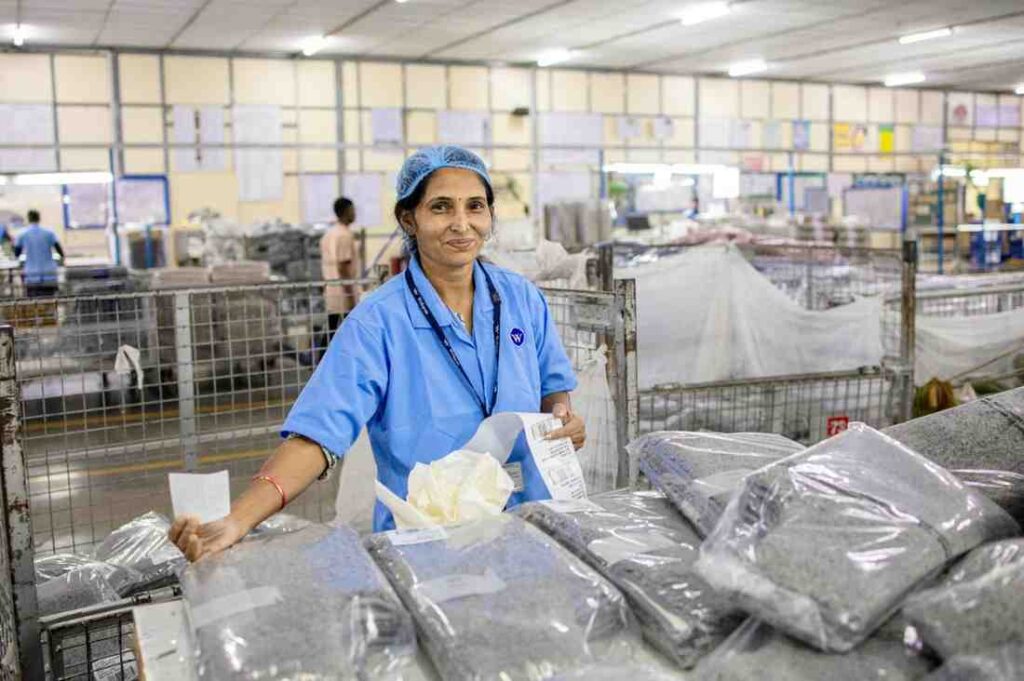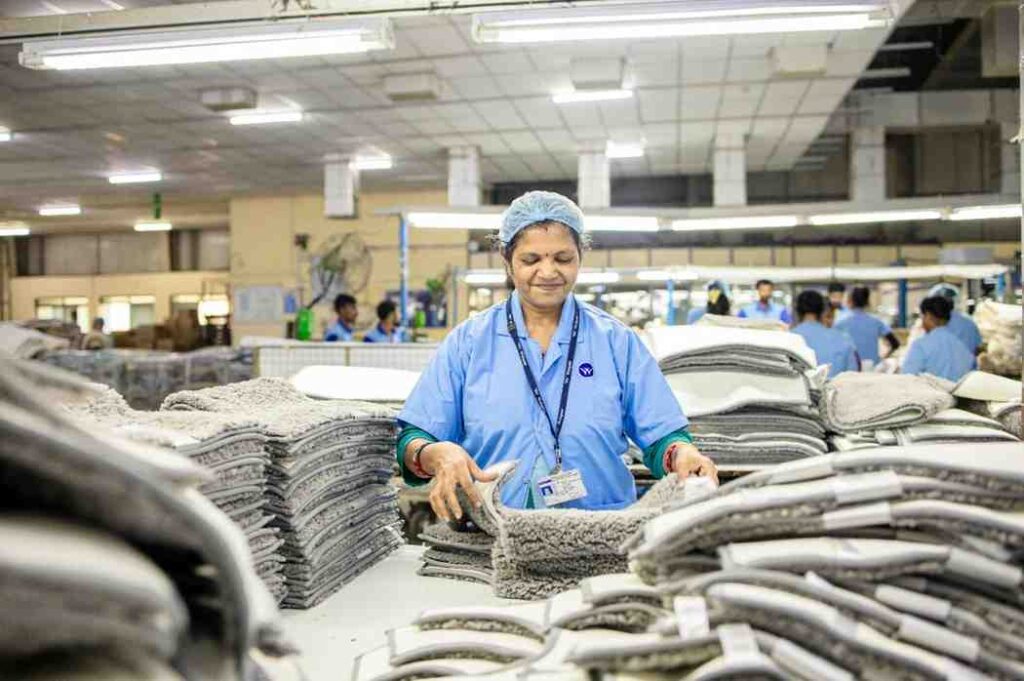Introduction: Shape Fashion from Concept to Creation
Apparel Production is a dynamic field that transforms design visions into wearable garments, blending technical expertise, innovation, and precision. By overseeing the creation of clothing from raw materials to finished products, professionals in this field bring fashion to life. If you’re passionate about craftsmanship and aspire to shape the fashion industry, this career is your workshop. This article explores the essence of Apparel Production, detailing its core elements, career paths, and how Aime Connect can elevate your journey. Let’s dive into how you can create garments that define style and quality.
What Defines Apparel Production?
Apparel Production involves managing the manufacturing process of clothing, from fabric selection and pattern-making to cutting, sewing, and quality control. It ensures designs are executed with precision, meeting aesthetic, functional, and market standards. For instance, a production manager might oversee the creation of a denim line, ensuring durability and fit. This field combines technical skills like garment construction with business acumen for cost and timeline management. Beyond production, it addresses sustainability and ethical practices. By delivering high-quality garments, Apparel Production professionals drive brand success and consumer satisfaction.

Your Path to Becoming an Apparel Production Professional
To become an Apparel Production professional, start with a Bachelor’s degree in Apparel Production, Fashion Technology, or Textile Engineering. Practical experience is crucial, so pursue internships with garment factories, fashion brands, or export houses. Building a portfolio of production projects, like sample garments or process workflows, showcases your expertise. Certifications in production management, quality control, or sustainable manufacturing, offered by recognized bodies, enhance your credentials. Staying updated on technologies like automated sewing or ERP systems sharpens your skills. Networking with manufacturers, designers, and industry leaders opens career doors. By combining education, practice, and connections, you can excel in this vital field.
Skills to Produce with Precision
Success in Apparel Production demands a versatile skill set. Technical expertise in pattern-making, sewing, and fabric technology ensures accurate garment construction. Analytical skills optimize production processes, costs, and timelines. Communication and leadership coordinate teams, from designers to factory workers. Problem-solving addresses challenges like supply chain delays or quality issues. Knowledge of sustainability and ethical practices aligns production with modern demands. Digital literacy, including CAD or production software, enhances efficiency. Adaptability manages fast-paced environments and evolving trends. By mastering these skills, you can deliver garments that meet high standards and market needs.
Courses to Launch Your Apparel Production Journey
Kickstart your Apparel Production career with targeted education. A Bachelor’s in Apparel Production or Fashion Technology covers manufacturing processes, quality control, and supply chain management. For specialization, a Master’s in Fashion Management or Textile Technology offers advanced insights. Short-term certifications in lean manufacturing, garment costing, or sustainable production cater to niche roles. Courses in supply chain logistics or CAD for apparel enhance versatility. Aime Connect provides curated programs blending theory with hands-on projects, ensuring you’re industry-ready. These courses empower you to develop expertise and stand out in the competitive apparel landscape.
Career Scope and Opportunities to Shape Fashion
Apparel Production offers diverse career paths across the fashion industry. You could work as a production manager, quality controller, or merchandiser for fashion brands, garment factories, or export units. Roles in sourcing focus on material procurement, while technical positions innovate production methods. In India, salaries typically start at INR 3-6 LPA, with growth as you gain expertise. The rise of fast fashion, sustainable clothing, and global trade fuels demand for skilled professionals. With opportunities in mass production, couture, and technical apparel, this field promises a rewarding career where you can craft quality and style.
Top Countries for Apparel Production Careers
Certain countries excel as hubs for Apparel Production professionals due to their robust manufacturing ecosystems. India leads with its massive textile and garment industry, driving export and domestic markets. China dominates global production with advanced infrastructure and scale. Bangladesh is a key player in affordable apparel manufacturing. Italy excels in luxury garment production, centered in regions like Tuscany. The United States offers roles in high-tech and sustainable production, especially in Los Angeles. These nations invest in manufacturing infrastructure, offering competitive salaries and varied roles tailored to your skills and ambitions.
Time Commitment to Master Your Craft
The duration of Apparel Production courses varies by level. A Bachelor’s degree typically takes 3-4 years, covering production techniques, quality assurance, and supply chain principles. A Master’s degree, ideal for advanced roles, requires 1-2 years. Certifications in production planning, quality control, or sustainable manufacturing can be completed in 3-12 months. Diploma programs, achievable in 1-2 years, suit those seeking quicker entry. Aime Connect’s tailored courses offer flexible schedules, blending online and offline learning for convenience. By investing this time, you gain the expertise to produce garments that define quality and innovation.
Online or Offline: Which Path Sews the Best Career?
Choosing between online and offline Apparel Production courses depends on your preferences. Offline programs offer hands-on experience in factories, sewing labs, or production units, ideal for mastering technical skills like cutting or quality checks. They foster networking with peers and industry mentors. Online courses provide flexibility, allowing you to study while balancing commitments. They include virtual simulations and software tutorials to replicate real-world tasks. Hybrid models, combining online theory with in-person training, offer a balanced approach. Aime Connect’s diverse offerings ensure quality education in a format that aligns with your professional goals.
Aime Connect: Your Workshop for Apparel Production Success
Aime Connect transforms your Apparel Production journey with innovative tools and resources. The platform offers personalized course recommendations, aligning programs with your career aspirations. Interactive modules, including virtual production simulations and quality control exercises, enhance your practical skills. You’ll benefit from webinars and mentorship by industry experts, keeping you informed about manufacturing trends. Aime Connect’s placement support connects you with top employers in fashion and textile sectors. Its intuitive interface ensures a seamless learning experience, empowering you to produce with confidence and impact.
Conclusion: Craft Your Future with Apparel Production
Apparel Production is a vital field where your passion for craftsmanship can shape the fashion industry. By pursuing relevant courses, honing essential skills, and leveraging Aime Connect’s resources, you can turn your vision into a thriving career. From managing production lines to ensuring quality, the opportunities are vast and impactful. Whether you choose online or offline learning, the right education equips you to innovate with purpose. Take the first step today and join a global community crafting style. Your journey to production mastery begins now—embrace it with dedication.
Thank You
Signup and enjoy free special features from Aime Connect Education Portal. Login to our portal: https://www.aimeconnect.com



